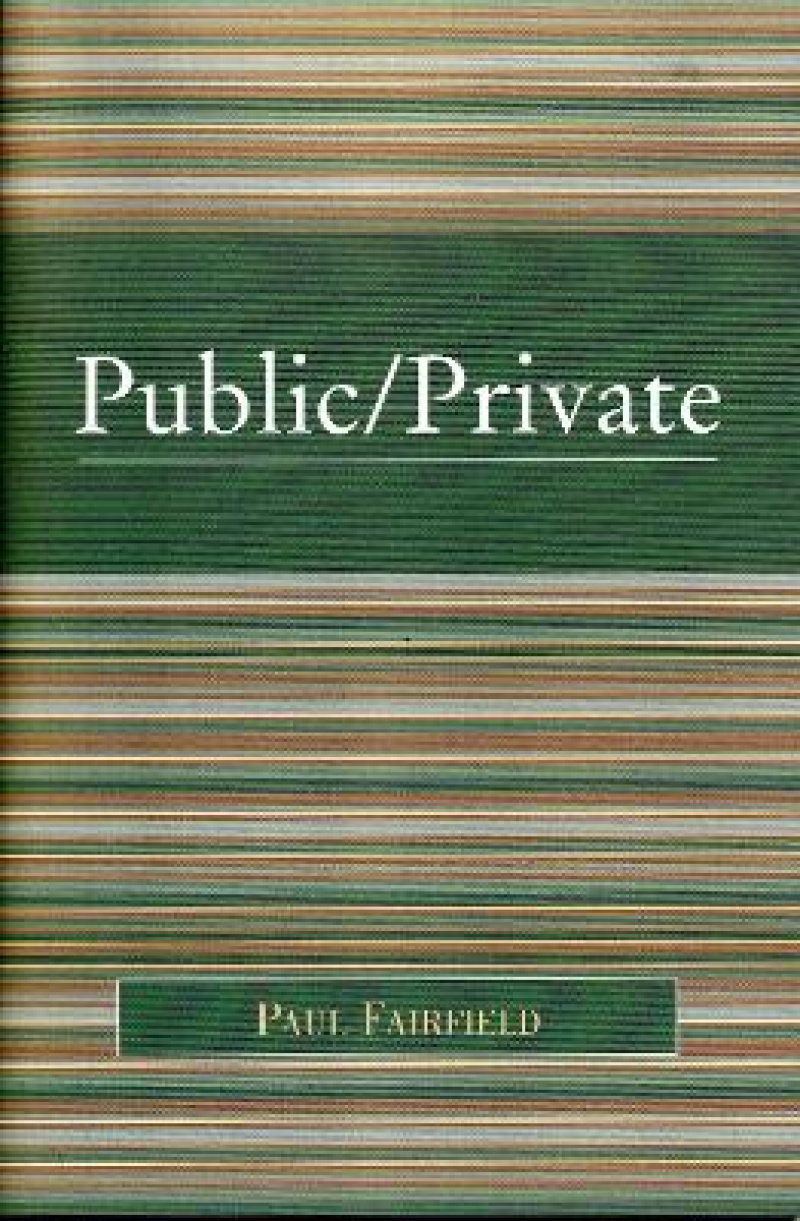Paul Fairfield provides a multidimensional analysis of the venerable distinction between the public and the private. His skillful defense of the right of privacy is thoughtful, well-informed, and well-argued in this important book.
- Tom Rockmore, Duquesne University,
The debate over the proper relation between the public and the private spheres of life has a long and complex history and is today at the heart of a number of heated debates. Paul Fairfield's clearly written and well-argued book, <i>Public/Private</i>, is an important and welcome addition to the literature on the subject. Through his historically informed and refreshingly sober analysis of the many complex issues surrounding the public/private controversy in today's world, Fairfield has managed to set out a well-articulated, well-balanced, and much needed defense of the moral right to personal privacy—to difference, plurality, and self-realization—in an age when everything seems to conspire against it.
- G.B. Madison, McMaster University,
With a seldom achieved compelling clarity, Paul Fairfield's straightforward account of the distinction between the public and the private demonstrates for all to see how it is possible to keep the distinction within the conversation of humankind without having it solidify into an ideologically charged dichotomy. The contribution of Fairfield's analysis to an understanding of the role of privacy rights in the realm of public policy extends across the disciplines of philosophy, political theory, psychology, and religion.
- Calvin O. Schrag, Purdue University,
Part 1 Negotiating a Distinction
Chapter 2 The Public/Private Dichotomy and its Critics
Chapter 3 Why Privacy?
Chapter 4 Definitions and Issues
Part 5 Privacy in an Age of Information
Chapter 6 The Emergence of a Problem
Chapter 7 Technology, Information, and Power
Chapter 8 Principles
Chapter 9 Privacy and Medical Records
Part 10 Political Philosophy in the Bedroom
Chapter 11 Political Moralism
Chapter 12 Privacy and Intimate Relations
Chapter 13 Civil Rights and Sexual Orientation
Chapter 14 Same-Sex Marriage
Chapter 15 Which Family? Whose Values?
Part 16 Property and the Private Sphere
Chapter 17 Domicile
Chapter 18 Property Rights and Agency
Chapter 19 Moral Spaces
Chapter 20 Intellectual Property Rights
Part 21 Revelation
